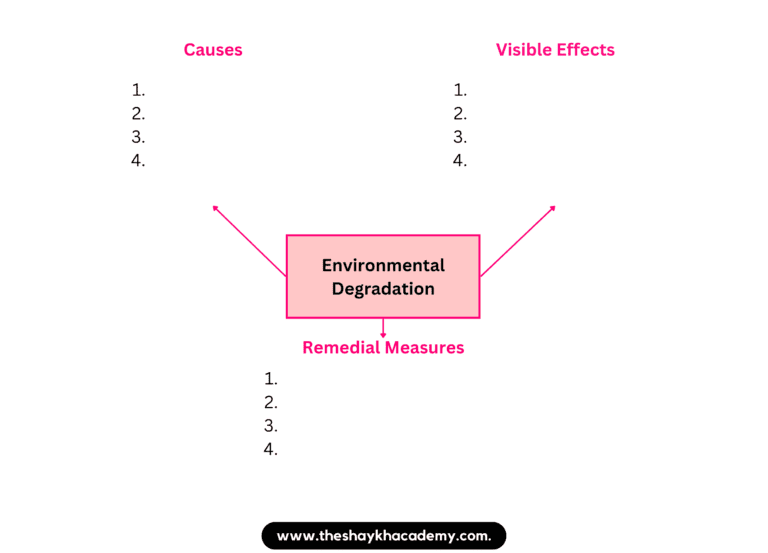Chapter 6 - International Problems
1. Choose the correct option from the given options and complete the statements.
(1) Which among the following is an international problem ?
(a) Border dispute between Maharashtra and Karnataka
(b) Kaveri water sharing question
(c) Problems of refugees
(d) Naxalism in Andhra Pradesh
Ans: (c) Problems of refugees
(2) Which among the following rights are not included in human rights ?
(a) Right to work
(b) Right to information
(c) Children’s rights
(d) Equal pay for equal work
Ans: (b) Right to information
(3) Which among the following days is observed on an international level ?
(a) Teachers’ Day
(b) Children’s Day
(c) Earth Day
(d) Flag Day
Ans: (c) Earth Day
2. State whether the following statements are true or false. Give reasons for your answer.
(1) It is necessary that all the nations should cooperate in order to find remedies on environmental degradation.
Ans: True.
Reason:
(i) The threat to the environment caused by pollution or by the leakage of oil or gas does not remain restricted to one nation.
(ii) Its effects are long-term, so it becomes necessary for nations to act with each other’s consent and cooperation in order to deal with these effects.
(2) Sino-Indian relations are friendly.
Ans: False
Reason:
(i) India and China had conflicts over the Aksai Chin area and the Macmohan line in Arunachal Pradesh.
(ii) China also wanted to control Tibet, which led to major disagreements.
3. Explain the following concepts.
(1) Human Rights
Ans:
(i) The concept of human rights has emerged from the concept of natural rights.
(ii) Human rights are those rights that are necessary for living as a human being and as a constituent of society.
(iii) In the Indian Constitution, human rights have been given the place of fundamental rights.
(2) Degradation of the Environment
Ans:
(i) Industrialization, an increasing need for energy, chemical fertilisers and pesticides used in agriculture, sound pollution due to vehicles, radiation from nuclear reactors, oil leaks, or leaks of chemical gases are the several causes for the degradation of the environment.
(ii) Due to this, we are regularly witnessing the extinction of species of plants and animals, a decrease in the fertility of soil, a water shortage, a fluctuation in the proportion of rainfall, global warming, the drying up of rivers and lakes, pollution of rivers and seas, the incidence of newer diseases, acid rain, a thinning of the ozone layer, etc.
(iii) The threat to the environment caused by pollution or by the leakage of oil or gas does not remain restricted to one nation. Also, its effects are long-term.
(iv) So it is very much necessary for all the nations to come together and act with each other’s consent and cooperation in order to deal with these effects.
(3) Terrorism
Ans:
(i) Terrorism is spreading fear and terror in a society by using or threatening to use violence against common and innocent people for achieving political goals.
(ii) In the present day, this is a significant problem.
(iii) Several countries in the world are facing this problem.
(iv) No nation is capable of countering terrorism entirely on its own.
(v) Hence terrorism is considered to be a global problem.
4. Complete the activity as per the given instructions.
Prepare the following concept map.

Ans:

5. Answer in brief.
(1) Explain India’s position in establishing human rights.
Ans:
(i) In the Indian Constitution, human rights have been given the place of fundamental rights like the right to freedom, the right to equality, etc.
(ii) The constitution gives the government the responsibility of protecting the weaker sections, like women and minorities, along with the Fundamental Rights.
(iii) In 1993, the Human Rights Protection Act was passed.
(iv) As per this law, the National Human Rights Commission and the State Human Rights Commissions were established.
(v) The Human Rights Commission is responsible for taking cognizance of complaints regarding violations of human rights and taking appropriate action regarding such violations.
(2) Narrate the effects of terrorism and suggest remedies to control it.
Ans: Terrorism is spreading fear and terror in a society by using or threatening to use violence against common and innocent people for achieving political goals. This is a major problem of our times. Several countries in the world are facing this problem. No nation is capable of countering terrorism entirely on its own. Hence terrorism is considered to be a global problem.
Effects of Terrorism:
(i) Terrorism has had a significant and lasting impact on international politics, becoming a concerning issue for the global community.
(ii) The world is filled with fear, and people live in a state of mutual suspicion.
(iii) Massive numbers of people are killed in terrorist attacks, and both private and public property is destroyed.
(iv) Tourism, trade, business, and industry have all been affected by terrorism.
(v) In countries where terrorism is prevalent, it has hampered economic growth.
(vi) It seriously compromises both the internal and exterior security of the nation.
Remedies to control terrorism:
(i) The security mechanisms of many countries should cooperate since terrorism has become a worldwide issue.
(ii) The international community should impose strict sanctions on nations that support terrorism.
(iii) People should increase their level of alertness and keep an eye out for potential terrorist activities.
(iv) They should assist law enforcement in capturing terrorists.
(v) To discourage others from engaging in terrorist attacks, the terrorists should receive exemplary punishment.
